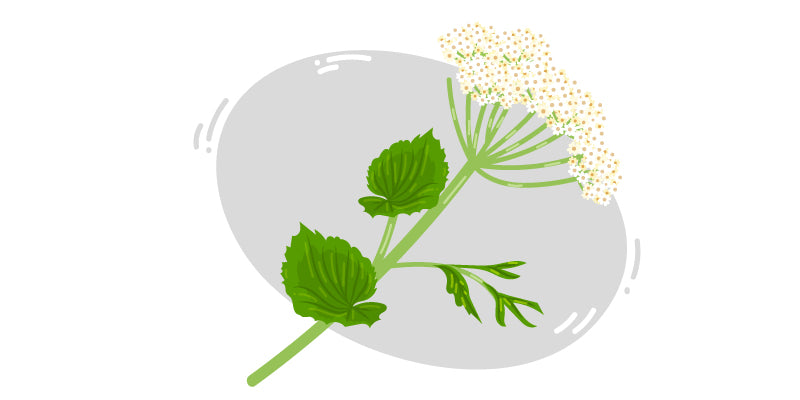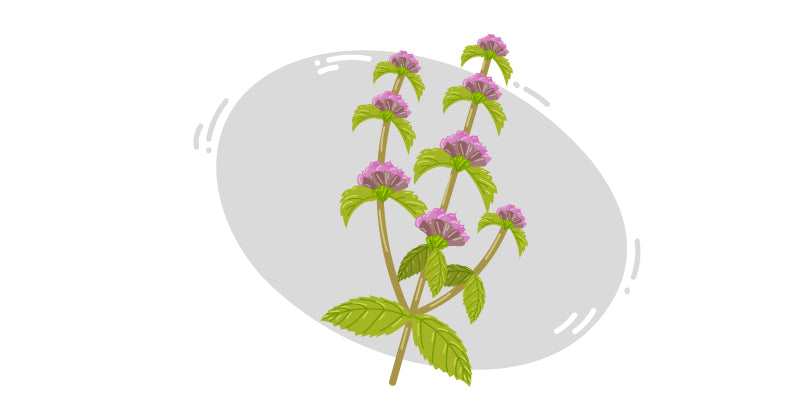Infusions that help improve digestion

Few , if any, people are spared from a digestive problem and at some point in their lives look for some way to improve digestion.
Most are unaware that digestion is of vital importance for the proper functioning of the body. But beyond eating, it is extremely important to pay attention to how you do it, since this could influence how you digest food.
Heavy digestion is very common when the pace of social life increases and you have to meet multiple social commitments. Many lunches or dinners in which fatty foods and alcoholic beverages abound.
But don't worry, the solution is not to miss any social or family event, but to know how you can help your digestive system.
And although it may seem like an impossible mission for many people, these problems are solved with preventive measures, knowing how the digestive system works and knowing how to recognize the symptoms and sensations of poor digestion. If you use the benefits of herbal teas to your advantage, you can improve digestion.
What is digestion?
It is the process by which food is broken down into its smallest parts, or nutrients, so that your body can use them to build and maintain tissues and as a source of energy.
It starts in the mouth, when you eat and chew; at this point the food is not in a form that your body can take advantage of its components to nourish itself.
The food and drink you consume must be broken down into smaller molecules before being absorbed through your blood and transported to cells throughout your body. This chemical process varies somewhat, depending on the kind of food.
I recommend you read this article from our blog " Why I have slow digestion and how to avoid it "
How does the digestive system work?

The digestive system is the set of organs that allows you to feed yourself and survive. It is made up of the esophagus, stomach, and small and large intestines. It is related to the liver, pancreas, circulatory and nervous system.
Simply put, digestion puts most of your vital organs to work. Therefore, if your digestion is bad, it will cause you a general malaise.
The stomach is in charge of storing and mixing the consumed food with the gastric juices and then passing it, little by little, to your small intestine. There, it will disintegrate into assimilable molecules that your blood will carry to all the cells of the body. What you cannot assimilate, such as fiber and dead cells, will be pushed into the rectum to be evacuated.
What are the symptoms of poor digestion?
The main symptom of poor digestion is stomach pain. If your stomach or small intestine is not moving as it should, the emptying process can take much longer. That gives you a feeling of heaviness, digestion seems eternal and you could feel general malaise.
If you have dyspepsia , that is, spasms, flatulence, stomach pain or heartburn, it is because your digestive system is having trouble digesting the food you have eaten.

Remember: if digestive problems are too frequent, it will be necessary to consult your doctor and review your usual diet to detect which foods are causing them.
What is an infusion?

It is known as the drink obtained by adding the leaves, flowers, roots, barks, fruits or seeds of certain herbs and aromatic or non-aromatic plants to hot water. In general, the word infusion refers to a way of preparation, beyond a drink. And you can eat them hot or cold, in as many flavors as you can imagine.
To prepare it correctly, you must let the ingredients rest in hot water for 10 to 15 minutes, before taking it. This allows the ingredients to release their essences and give the water a good taste.
Among the most consumed infusions worldwide are: tea, coffee, mate, lime and chamomile, among others. But without a doubt, tea and coffee are the most consumed.
How can herbal teas improve digestion?
You must have heard that drinking an infusion after eating is recommended to preserve or improve your general health. And the truth is that it gives you two relevant benefits if you take them after eating:
Help improve digestion
They help your digestive process to be carried out quickly, pleasantly and easily to bear. By taking an infusion, you avoid the heavy and endless digestions that turned your afternoons and nights into real nightmares.
For after eating, the most recommended infusions are those that include exciting substances such as theine present in white tea, green tea and especially in black tea, in addition to the caffeine contained in coffee, because they help speed up your metabolism by influencing positively in making your digestive process faster and better.
You can consume the classic eminently digestive infusions such as chamomile, lemon verbena, anise or mint that help you eliminate or reduce gases derived from the fermentation of food and prevent bloating caused by heavy digestions.
Promote the feeling of satiety
How many times do you feel hungry after eating? How many hypercaloric desserts do you need to achieve total satiety?
Infusions can offer you a feeling of fullness, which makes them the perfect substitute for a dessert, in a healthy way. Thus, you will avoid the risk of gaining weight and contracting diseases by consuming excess sugar or unnecessary calories. In addition, you will be able to take better advantage of the nutrients and achieve a greater sense of well-being.
For these two reasons, it is advisable that after eating you consume an infusion to speed up your digestion process and ensure that food is better used by your body, you will also feel satiated and much lighter to face your daily activities or to sleep pleasantly .
Tips to improve digestion



Which infusions are recommended to improve digestion
Plants and spices have been used in food preparation since ancient times. Not only to impart flavor, color and aroma to dishes, but also for its digestive and bactericidal properties.
If you want to improve digestion, then I show you these infusions to take after eating:
Artichoke (Cynara scolymus)

Increases the expulsion and fluidity of bile, facilitating the breakdown of fats. For this reason, it is ideal for treating slow digestions that cause heaviness, abdominal distension and flatulence. Its leaves are prepared in infusion.
Anise (Pimpinella anisum)

Also called green anise, it is a medicinal plant widely used to combat acidity, indigestion, gas and stomach pain, because it has carminative and antispasmodic properties. It is indicated for its calming properties and taken after eating it can improve digestion, reducing the formation of gases that cause abdominal distension and colic. To prepare it, the dried fruit is used, which gives it a sweet and intense flavor.
Boldo (Peumus boldus)

Its leaves are used and highly appreciated for their exquisite aroma for the preparation of digestive infusions, the treatment of gallbladder and liver disorders. Prevents heaviness of the stomach, protects the liver and pancreas. It also facilitates the digestion of fats and strengthens the stomach mucosa. In addition, a diuretic effect so it helps you eliminate fluids and purify your body of toxins.
Lemon verbena (Aloysia citrodora)

This plant, taken as an infusion, is considered an effective stomach tonic to prevent flatulence, slow digestion and gastrointestinal spasms. Its lemony and fresh flavor makes it very appetizing. It is also consumed as a sedative and muscle relaxant. It has a significant amount of melatonin, a substance that is used as a natural relaxant and remarkably favors night sleep.
Spearmint (Mentha spicata)

This herb is well known for its digestive properties and for fighting bad breath caused by heavy meals and digestive or oral problems. Its carminative and antispasmodic properties help reduce digestive disorders such as gas, bloating, nausea, indigestion or colic. It is also effective in relieving irritable bowel symptoms and relaxing smooth muscles in the digestive tract.
Fennel (Foeniculum vulgare)

This plant grows wild in the southern regions of Europe, well known for its digestive properties. To prepare your infusion, the dried fruits of the plant are used. It has an intense and sweet flavor similar to anise, since both plants contain anethole among their active ingredients. This plant is a good tonic for digestion, increases gastrointestinal secretions, is an excellent carminative (reduces gas production), is intestinal soothing, eliminating colic, and stimulates natural bowel movements.
Ginger (Zingiber officinale)

It is a widely used species, especially in oriental cooking. But it is also increasingly used in the West due to its properties to improve digestion, particularly when the problem comes from the intestinal area; it also relieves nausea and calms symptoms of the common cold. The part of ginger used is the root and to prepare it, you must place a tablespoon of ground ginger root and let it rest for 5 minutes in a cup of hot water, filter it and drink it. In a short time a great improvement is noticed.
Chamomile (Matricaria chamomilla)

It is one of the most popular plants for its digestive properties. The active principles of this plant act at a topical level, which is why chamomile is an infusion indicated above all to calm spasms and pain during digestion. It helps prevent gases from accumulating in the stomach and relieves abdominal heaviness. In addition, its smooth and pleasant flavor is ideal to end any meal. It is also effective against nerves and to combat insomnia.
Peppermint (Mentha piperita)

It is a very common plant in the Mediterranean culinary tradition. It can be easily grown in a pot and is especially appreciated for its digestive properties; Thanks to its essential oils, they help improve digestion and calm pain.
Pennyroyal (Mentha pulegium)

It is one of the varieties of mint that grows spontaneously in Asia and the Mediterranean area. It has been used for centuries for its multiple digestive properties; among its best-known uses is to facilitate digestion and prevent the accumulation of gases; Also, it has antispasmodic effects.
Licorice (Glycyrrhiza glabra)

In the root of this plant are concentrated the beneficial active ingredients for health. It spread throughout Asia and Europe, both for its sweet aniseed flavor and for a series of virtues that help improve digestion. It acts as an antacid, helps to heal stomach ulcers and neutralizes bad breath.
Rosemary (Rosmarinus officinalis)

This aromatic plant, native to the rocky coasts of the Mediterranean and the Caucasus, has been widely used in cooking since ancient times as a condiment and as an excellent digestive. And it is that it stimulates and favors secretions and the production of gastrointestinal juices, which is why it is used to prepare very pleasant, aromatic and perfect infusions to take after meals.
Linden (European Tilia)

It is a fairly common tree in various countries. Its aromatic flowers are excellent to help regulate digestion, relieving certain problems and discomfort related to the stomach. Linden infusions are useful for mediating heavy digestions, heartburn and gastritis, caused by excess nerves and stressful situations.
Thyme (Thymus vulgaris)

It is one of the most popular Mediterranean aromatic herbs, both for cooking and for health care. It is traditionally used for its digestive properties, in treatments against slow digestive processes, stomach pain, abdominal colic, flatulence, stomach inflammation or gastritis, gastroenteritis, and irritable bowel syndrome.
Lemon balm (Melissa officinalis)

Also known as lemon balm, it is considered the bee plant, because its intense citrus aroma is irresistible to these insects. Its leaves are collected before flowering, because it is when they contain higher concentrations of active ingredients. It can be prepared with the fresh or dried leaves for difficult digestions, as it helps to reduce gas, nausea, digestive problems and is excellent for the assimilation of food. It also acts on symptoms caused by stress.
Yerba Mate (Ilex paraguariensis)

It is an excellent influencer on stomach and digestive health. Stimulates the production of bile and gastric acids, helping to improve the digestion of dietary fats; it also promotes bowel movement and copious meals. It is fabulous for improving slow digestion and bile problems.
Since you know all that infusions can do for your digestion and your general well-being, choose the one you like best.
Will you use any of these infusions to improve digestion? tell us.



